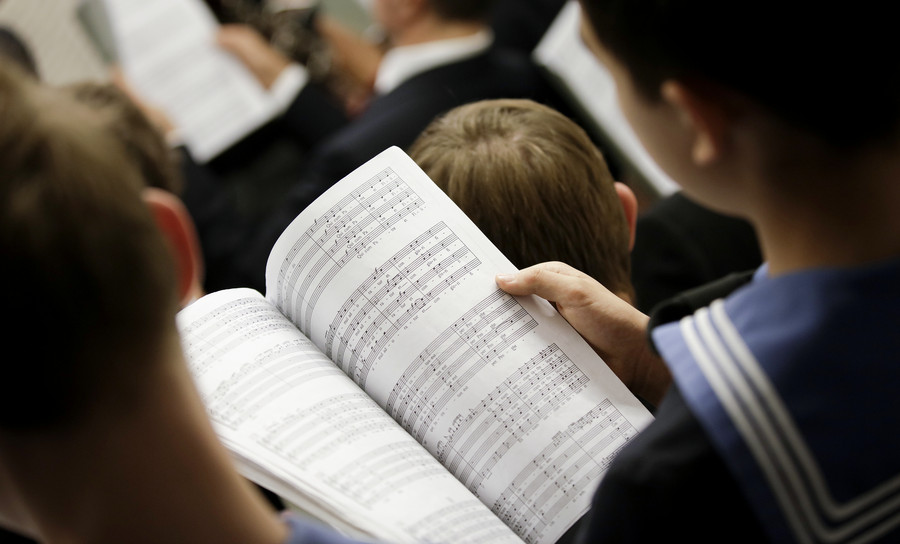Wolfgang Amadeus Mozart (1756-1791): Mass in D major, KV 194
The majority of Mozart's church music was composed in Salzburg, mostly for the cathedral. The Missa brevis in D major is dated 8 August 1774; it is not known when it was first performed.
As a "Missa brevis", which was intended for ordinary Sundays, it not only had to be a "short mass" in terms of performance time, as the name suggests, but also had to be reduced in terms of the instrumental accompaniment. In this case, it is the "church trio", which in Salzburg essentially consisted of 2 violins and bass/organ; trombones could support the singing voices.
The time constraints when composing a mass are a particular challenge in the wordy Gloria and Credo movements. Mozart largely refrains from word repetitions, which would also be found in the impactful final fugues. Instead, the text is set in a homophonic setting for long stretches. Monophony, solos and imitations are used all the more deliberately to emphasise individual passages of text. In the Credo, for example, the incarnation of Christ "Et incarnatus est - et homo factus est" is not only emphasised by a simple solo, but the descent is traced with a leap from the soprano solo to a bass solo. The central passage of the resurrection "Et resurrexit" is joyfully fugalised - with a short imitation by all the voices, emphasising the text by sounding it four times.
Counterpoint was still the central basis of church music in the Age of Enlightenment, which demanded a simple, comprehensible musical language. Mozart uses it primarily in the movements with little text, but avoids overly complex forms even here.
The Mass in D major was so well received that it was the first mass by Mozart to appear in print as early as 1793.
Dr.in Maria Helfgott
Translation: Godwin Gundacker
Conductor: Jordi Casals
Organist: Jeremy Joseph
Choir: Vienna Boys' Choir, Members of the Vienna State Opera men's choir and "Choralschola der Wiener Hofburgkapelle"
Orchestra: Members of the Vienna State Opera orchestra
Celebrant: Peter Schipka
Duration: approx. 70 min (09:15-10:25)
Ticket reservation at office@hofmusikkapelle.gv.at
Online ticket sale through Culturall:


